June 22 is the day that Blackjack will begin at the Hardrock Casino down here in South Florida. I have already picked out a nice tuxedo for them to bury me in.
I am not a Blackjack man. I am Texas Hold'em and Omaha Hi-lo, though I have played my share of Blackjack. My memory says that I usually won . . . this is a dangerous type of memory for a degenerate such as I to have.
I will not play.
I will not play.
I will not play.
I will not go.
God help me, I will not go.
Let's talk about sex instead.
Two things sexwise in the news caught my attention this week.
1) R&B singer R. Kelly was acquitted despite the film evidence that he had had sex with two female minors, ages 17 and 13. [You have him on tape--how can he be not guilty?]
2) Seventeen Teen girls at Gloucester High in Massachusetts made a pregnancy "pact" with each other. [These girls are just ridiculous--or are they?]
People, we have a problem with our kids and sex in this country, and the problem is not the kids, or the sex--the problem is . . . us.
Take a look at this statement: If our minor children (our daughters) engage in sex, then they risk getting pregnant or catching one of many nasty and/or deadly diseases.
I think the above statement is true, and I agree with it . . . for the most part.
Now take a look at this statement: If our adult women (our mothers and wives) engage in sex, then they risk getting pregnant or catching one of many nasty and/or deadly diseases.
I think this statement is also true, and I agree with it . . . but adult women (especially my wife) should get pregnant or the human race will ultimately end . . . and adult women should be able to afford to raise the children that may result from pregnancy . . . and adult women should be smart enough to take precautions if they do want to have sex but not to become pregnant . . . and adult women should be smart enough to take precautions if they want to have sex but want not to catch nasty and/or deadly diseases . . . and adult women should have sex because it is fun and leads to orgasm, which is awesome . . . and adult women should have sex because they are human and their bodies naturally crave it . . . and adult women should have sex because it helps them to bond with their life partners . . . and adult American women should have sex a lot because sex sells and we do a lot of selling in our magazines and on our billboards and TVs . . . and adult American women should have sex a lot because they are eating better, working out at the gym or with a personal trainer, getting more cosmetic surgeries than ever in the history of humankind, living longer, looking better as they live longer, looking sexier, in fact, and thus advertising their sex to potential partners, to men, who now have Viagra, and ten percent of the time to other women, who don't need Viagra because lesbians don't need sturdy, erect penisis to do their thing . . .
So then, sex is a good thing for adult (over 18) American women, but not good for minors (women under 18). Why?
Simple: because girls under 18 do not have a sex drive. No? Come on now, we've all gone through 9th grade.
Well, because girls under 18 do not have orgasm. No? They have a clitoris, right?
Well, then, because the bodies of girls under 18 are not yet ready to accept a penis; it will be too big and hurt them. No? No--their bodies, if they have been through puberty, are actually stronger than they will ever be--not only can they accept a penis, but they have the strong hips and back to bear a child--with relative ease compared to a woman of 25.
Well, because the bodies of girls under 18 are not attractive; their bodies are only attractive to men (or lesbians) who have a mental problem. That is why we have no fashion models under 18. What pervert would be attracted to a girl who had not had her 18th birthday yet? Gross. Yucky. No? They have been through puberty and their bodies have developed sexually. They look like what they are: They look like what nature has turned them into since about age 13--sexually mature adult human females: they look like women because that is what they are. Young women, but they are still women--not girls.
Well, then, because the bodies of girls under 18 do not crave sex; the sex drive only begins after the 18th birthday. No? They are human--and they have already gone through puberty. You keep forgetting the clitoris.
Well, then, because American girls under 18 are not usually financially or mentally prepared for the problems that can come with sex--sexual diseases, pregnancy, childrearing, the stresses of a serious romantic relationship. No? Absolutely correct. These are the reasons. THESE are the only reasons. And these reasons are culturally based. Take a few seconds to read this again before we move on.
In America, we expect our children ideally to go to school until they are 18, graduate with a diploma, and then earn a college degree or two, make some money, and then to find a mate and start a family.
This is a good plan, especially for a woman who does not come from a wealthy home. This is a plan for success for a woman who does not come from a wealthy home. The woman who follows this plan is unlikely ever to find herself below the poverty line. The woman who follows this plan is unlikely to have to worry about finding a baby sitter while she takes night classes at the commuter college. The woman who follows this plan is unlikely to have to miss days at work at a minimum wage job because the baby is sick--again. The woman who follows this plan is unlikely to have to fight with a deadbeat dad for child support, which she needs just to make ends meet.
In America, a woman between the ages of 13 and 18 and who does not come from a wealthy home, must first learn to take care of herself before she can take care of a child.
This is not true in other cultures and in other countries. There are some places where it is unremarkable to find a 13 or 14-year old woman with a husband and children. In most of these places, women are not expected to go to college. Their formal educations (if any) are usually finished by the time they are 13.
Even in America, go back a hundred years, or even today, go to some rural parts of our country, and again it will not be remarkable to find women of say 15, who are married and pregnant. Again, what is expected of these women? Was college ever in their future? Were they ever expected to pursue careers as doctors, lawyers, and etc.?
What we are saying, then, is that we want our American girls to achieve certain specific educational and career goals and that sex--though enjoyable and important and necessary--will be a serious impediment to achieving those goals if it results in a pregnancy, life-threatening disease, or in relationship complications.
So . . . sex is not bad. Sex is good. But we have tons of solid evidence that sex at an early age for the middle class or the poor in our culture will lead to disaster (or keep you in the disaster you were born into).
Keep in mind that if you are the daughter of a billionaire and you have sex at 15 and you get pregnant, this problem will not in any way prevent you from attending Yale and/or having a great life. You don't have to earn money in this dog eat dog world--you already have it. You can get pregnant at 15 or 35--it is not going to affect your status at all, unless you get disinherited.
Keep in mind that if you come from some part of the world where the expectations for you as a woman are to find a man as soon as you can (or have one arranged for you to mate with), then a pregnancy at 15 is not going to change your life very much.
So . . . sex is not bad. Sex is good. But in America a teen pregnancy can really make achieving the good things in life difficult.
So then why do teen girls do things that might potentially get them pregnant and slow down their progress in life? Because they are stupid? Because they are "bad"? No. It is because they are human and have biological drives. BIOLOGICAL drives. Not evil drives. Not devilish drives. Not insane drives. Normal, run of the mill, human sex drives.
In other words, our society is at odds with 20,000 years of evolutionary hardwiring which programs girls (and boys) to become sexually mature at 13. In other words, when a 13 to 18-year old woman denies, or puts on hold, her sexual feelings she is fighting against what is NATURAL in order to do what is a correct strategy for financial success within her society.
In other words, when the young man feels her up, and her parents say don't do it, it is the parents who are demanding that she behave in an extraordinary fashion.
And what do we do to prevent our young, financially unprepared, and mentally unprepared women from getting pregnant?
Tell them that SEX is bad . . . good luck with that.
We try to scare them in our school's sex-ed classes with talk of frightful diseases and cautionary tales of poverty and lifelong unhappiness borne of unplanned teen pregnancies.
We try to scare them into abstinence in our churches with thou-shalt-nots from the pulpit coupled with the suggestion that an unplanned pregnancy and/or sexual disease will make one an outcast in the congregation's eyes--this latter strategy being perhaps the least successful in modern times, not because social ostracism has lost its effectiveness today as a tool for governing behavior, but because as in the example of the Gloucester school above, the threat of social ostracism can be used by the misguided and misinformed young to encourage behavior that older members of the society are trying to prevent.
So what we have is this . . . society (through TV and movies and all kinds of advertising and internet porn and role models like the bed-hopping celebrities we idolize) is telling me that I want to have sex . . . my friends (especially the boy I like and who has taught me how to kiss with tongue) are all telling me that I want to have sex . . . my body (through the alarm clock of puberty) is telling me that I want to have sex . . . even you, my parents, by screwing each other and bringing me into this world, are proving to me that I'm not the only one who wants to have sex . . .
And some 500-page, hardcover book and a dozen gruesome black and white slides in my boring 9th grade sex-ed class tell me that I should not. (sex is bad--or worse yet, sex is clinical and unnatractive)
And my Sunday school teacher tells me that I should not. (sex is not for fun--sex is for procreation)
And the Center for Disease Control tells me that I should not. (sex is scary--sex is only for experts in white gloves)
And the welfare line tells me that I should not. (sex is a trap--sex ties you to an abusive or absentee male and an expensive baby to raise--sex is only for women who want to be poor all of their lives)
Well, surprisingly, these dusty, time-worn, somewhat disengenuous strategies do succeed more often than they fail . . . in fact, there still are a lot of young women betweent 13-18, the majority, who are NOT getting pregnant.
The message seems to be, "Have sex now and pay for the rest of your life."
If your daughter buys that propaganda, then she will be okay, I guess--though somewhat messed up in the head for a while. [But fear not, she won't be frigid--not like in the old days. See? It is important for a society that scares its daughters about sex in order to keep them unpregnant to also be a society that is sexually overt in its media, advertising, and entertainment. No, that good virgin who follows the plan and weds at 25 after getting her career in order will be so horny from all of the sexual bombardment that she will cripple her poor husband on the honeymoon.]
But is this centuries-old, transparent scare-tactic going to work for your clever daughter? She may be the exception to the rule. She may be the natural creature who acts naturally. Despite your pithy sermon that viriginity leads to a way out of the ghetto or out of the middle class, she may listen to her loins.
Here's a better plan. Understand that your sons and daughers are sexual creatures with normal, human sex drives.
Teach them about their bodies.
Teach them feelings, like love, lust, sexual desire, jealously. Teach them about broken hearts.
Create a plan for their success in life. Show them the plan for their success. Show it to them early--from age six or seven. Get them to thinking about it and working towards it. Show them where sex fits in and where it does not. Show them how pregnancy will impact that plan. Teach them about birth control. Teach them that sex is good, not bad. Teach them to be responsible. You are not raising children to be children. You are raising them to be adults. Show them your bank account. Let them know how rich or how not-rich you are. Show them what an unexpected pregnancy will do to everyone, including the innocent child.
And keep them busy. Keep them active in school. Keep them active after school. Idle hands are the devil's workshop. Idle hands are the devil's foreplay. As a wise friend once told me about kids, "Keep them interested and keep them interesting."
Sex is fun; but so are other things, like being good at a sport, or playing a musical instrument well, or having great conversations with loved ones and kin, or doing volunteer work that makes a difference in your community. If you don't teach your kids how to have fun, someone else will.
I'll catch you later in the maternity ward.
Or the welfare line.
Thanks,
Preston
A blog for lovers of the printed word (novels, short stories, poems--the Ing so to speak), popular film, politics, and casinos (the Bling).
Friday, June 20, 2008
Sunday, June 15, 2008
New York Times Book Review
I am humbled by the Gray Lady. This NY Times review of my novel is a great Father's Day gift.
Happy Father's Day, to fathers everywhere.
Thanks,
Preston
________________________________
New York Times Book Review
Sunday, June 15, 2008
ALL OR NOTHING
By Preston L. Allen.
252 pp. Akashic Books. Paper, $14.95.
Review by Andrew Hultkrans, author of “Forever Changes.” He is at work on a book about surveillance in America.
There are only two kinds of gamblers: the lucky and the broke,” says the compulsive wagerer at the center of Preston L. Allen’s casino noir “All or Nothing.”
Known simply as P (protagonist? Preston?), he’s been one or the other his entire adult life. A Miami school bus driver with a large family and an even larger jones, he squanders his paychecks and scrounges loose change from school bus seats, then loses it all at South Florida Indian casinos, mostly to slot machines, the crack cocaine of gambling. P is not above wishing for his young son’s life-threatening allergic reactions, believing the child utters winning numbers while slipping toward a coma. He plays, he loses and, with the Sisyphean regularity of the certifiably insane, he returns to play again. Above all, he lies — to his wife, his bosses, his children, himself.
Even those well acquainted with the generic vices — substances, sex — often don’t understand gambling, which seems so nakedly suicidal as to preclude the grace period of bliss and denial necessary to cultivate a deep-rooted addiction. As with Frederick and Steven Barthelme’s disarming gambling memoir, “Double Down” (1999), the chief virtue of “All or Nothing” is its facility in enlightening nonbelievers, showing how this addiction follows recognizable patterns of rush and crash, but with a twist — the buzz is in the process, not the result. “That’s what people don’t understand about gamblers,” P explains. “We gamble to gamble. We play to play. We don’t play to win.”
Nevertheless, just as he’s finally lost his family, P does win — and big. This leads him to Vegas, where he plays in big-stakes poker tournaments, sporting the requisite black Stetson of the “whale,” or perennial high-roller. Even when his fortunes improve, P senses his spiritual bankruptcy, eventually attaining a form of sobriety through solitaire. He still haunts the casinos, however, as a sort of Ghost of Jackpots Past, dispensing funds and cryptic wisdom to desperate gamblers. (That he sleeps with some of them complicates his newfound saintliness.)
As a cartographer of autodegradation, Allen takes his place on a continuum that begins, perhaps, with Dostoyevsky’s “Gambler,” courses through Malcolm Lowry’s “Under the Volcano,” William S. Burroughs’s “Junky,” the collected works of Charles Bukowski and Hubert Selby Jr., and persists in countless novels and (occasionally fabricated) memoirs of our puritanical, therapized present. Like Dostoyevsky, Allen colorfully evokes the gambling milieu — the chained (mis)fortunes of the players, their vanities and grotesqueries, their quasi-philosophical ruminations on chance. Like Burroughs, he is a dispassionate chronicler of the addict’s daily ritual, neither glorifying nor vilifying the matter at hand. Yet he never wallows like Lowry nor amuses like Bukowski. His spare, efficient prose could be called medium-boiled, but at times it seems overly casual, tossed off. While this makes for “realism” and easy digestibility, it prevents Allen from scaling the heights (and plumbing the depths) of his literary forebears.
No contemporary addiction narrative is complete without a 12th step in the third act, and “All or Nothing” follows the program, however reluctantly. At Gamblers Anonymous meetings, P refuses to sugarcoat — or fully accept — recovery: “Being rescued” from gambling “is like living death. If you believe in luck, you feel empty when you stop believing. Now you know there is no luck. ... You no longer believe.” In a curious inversion of the “Higher Power” concept — “There are no atheists in a casino,” Allen writes, in the novel’s finest line — gambling recovery entails losing faith, not gaining it.
As another 12-step commonplace has it, unrepentant addicts wind up dead or in jail. And in a novel that traces the jackknife reversals of the gambling life, it would be unwise to bet on a clean getaway for P. “Addiction is not a tragedy,” P concludes. “It is a love story with abuse in it. We love, and it abuses us.”
Happy Father's Day, to fathers everywhere.
Thanks,
Preston
________________________________
New York Times Book Review
Sunday, June 15, 2008
ALL OR NOTHING
By Preston L. Allen.
252 pp. Akashic Books. Paper, $14.95.
Review by Andrew Hultkrans, author of “Forever Changes.” He is at work on a book about surveillance in America.
There are only two kinds of gamblers: the lucky and the broke,” says the compulsive wagerer at the center of Preston L. Allen’s casino noir “All or Nothing.”
Known simply as P (protagonist? Preston?), he’s been one or the other his entire adult life. A Miami school bus driver with a large family and an even larger jones, he squanders his paychecks and scrounges loose change from school bus seats, then loses it all at South Florida Indian casinos, mostly to slot machines, the crack cocaine of gambling. P is not above wishing for his young son’s life-threatening allergic reactions, believing the child utters winning numbers while slipping toward a coma. He plays, he loses and, with the Sisyphean regularity of the certifiably insane, he returns to play again. Above all, he lies — to his wife, his bosses, his children, himself.
Even those well acquainted with the generic vices — substances, sex — often don’t understand gambling, which seems so nakedly suicidal as to preclude the grace period of bliss and denial necessary to cultivate a deep-rooted addiction. As with Frederick and Steven Barthelme’s disarming gambling memoir, “Double Down” (1999), the chief virtue of “All or Nothing” is its facility in enlightening nonbelievers, showing how this addiction follows recognizable patterns of rush and crash, but with a twist — the buzz is in the process, not the result. “That’s what people don’t understand about gamblers,” P explains. “We gamble to gamble. We play to play. We don’t play to win.”
Nevertheless, just as he’s finally lost his family, P does win — and big. This leads him to Vegas, where he plays in big-stakes poker tournaments, sporting the requisite black Stetson of the “whale,” or perennial high-roller. Even when his fortunes improve, P senses his spiritual bankruptcy, eventually attaining a form of sobriety through solitaire. He still haunts the casinos, however, as a sort of Ghost of Jackpots Past, dispensing funds and cryptic wisdom to desperate gamblers. (That he sleeps with some of them complicates his newfound saintliness.)
As a cartographer of autodegradation, Allen takes his place on a continuum that begins, perhaps, with Dostoyevsky’s “Gambler,” courses through Malcolm Lowry’s “Under the Volcano,” William S. Burroughs’s “Junky,” the collected works of Charles Bukowski and Hubert Selby Jr., and persists in countless novels and (occasionally fabricated) memoirs of our puritanical, therapized present. Like Dostoyevsky, Allen colorfully evokes the gambling milieu — the chained (mis)fortunes of the players, their vanities and grotesqueries, their quasi-philosophical ruminations on chance. Like Burroughs, he is a dispassionate chronicler of the addict’s daily ritual, neither glorifying nor vilifying the matter at hand. Yet he never wallows like Lowry nor amuses like Bukowski. His spare, efficient prose could be called medium-boiled, but at times it seems overly casual, tossed off. While this makes for “realism” and easy digestibility, it prevents Allen from scaling the heights (and plumbing the depths) of his literary forebears.
No contemporary addiction narrative is complete without a 12th step in the third act, and “All or Nothing” follows the program, however reluctantly. At Gamblers Anonymous meetings, P refuses to sugarcoat — or fully accept — recovery: “Being rescued” from gambling “is like living death. If you believe in luck, you feel empty when you stop believing. Now you know there is no luck. ... You no longer believe.” In a curious inversion of the “Higher Power” concept — “There are no atheists in a casino,” Allen writes, in the novel’s finest line — gambling recovery entails losing faith, not gaining it.
As another 12-step commonplace has it, unrepentant addicts wind up dead or in jail. And in a novel that traces the jackknife reversals of the gambling life, it would be unwise to bet on a clean getaway for P. “Addiction is not a tragedy,” P concludes. “It is a love story with abuse in it. We love, and it abuses us.”
The Incredible Hulk Rules
I saw it.
I liked it. I will see it again.
It is much better than . . . Hulk # 1, FF # 1, FF # 2, Daredevil (cinema version and director's cut), Ghost Rider, Road to Perdition, and Sin City.
It is not as good as . . . Spiderman # 1, Spiderman # 2, Batman Begins, the Incredibles, and Iron Man.
It is roughly equal to Spiderman # 3 and Superman Returns.
It is slightly better than both of those movies because of what it represents: Marvel is clearly paving the way for either an AVENGERS vs Hulk movie (Iron Man, Thor, Captain America, probably Giant Man and the Wasp) or for an Iron Man vs Hulk movie--which would be AWESOME!!! I feel like I am 12 again!
Also, Will Smith looks good in his trailer for Hancock--it looks like a good twist on the superhero plot--the drunken hero who needs a publicity makeover. I will be watching that one.
Also-also, I just heard about a book that I have to buy right now from Amazon based purely on my curiosity about its subject matter. It's called "Superpowers" by David Schwartz.
http://www.amazon.com/Superpowers-Novel-David-J-Schwartz/dp/0307394409/ref=pd_bbs_sr_1?ie=UTF8&s=books&qid=1213566298&sr=1-1
Thanks,
Preston
I liked it. I will see it again.
It is much better than . . . Hulk # 1, FF # 1, FF # 2, Daredevil (cinema version and director's cut), Ghost Rider, Road to Perdition, and Sin City.
It is not as good as . . . Spiderman # 1, Spiderman # 2, Batman Begins, the Incredibles, and Iron Man.
It is roughly equal to Spiderman # 3 and Superman Returns.
It is slightly better than both of those movies because of what it represents: Marvel is clearly paving the way for either an AVENGERS vs Hulk movie (Iron Man, Thor, Captain America, probably Giant Man and the Wasp) or for an Iron Man vs Hulk movie--which would be AWESOME!!! I feel like I am 12 again!
Also, Will Smith looks good in his trailer for Hancock--it looks like a good twist on the superhero plot--the drunken hero who needs a publicity makeover. I will be watching that one.
Also-also, I just heard about a book that I have to buy right now from Amazon based purely on my curiosity about its subject matter. It's called "Superpowers" by David Schwartz.
http://www.amazon.com/Superpowers-Novel-David-J-Schwartz/dp/0307394409/ref=pd_bbs_sr_1?ie=UTF8&s=books&qid=1213566298&sr=1-1
Thanks,
Preston
Subscribe to:
Posts (Atom)
Lipshitz 6

Reading T Cooper for Christmas
Click Here to Purchase Lipshitz 6
Punk Blood

Jay Marvin
Click Here to Purchase Punk Blood
Breath, Eyes, Memory

Anonymous Rex
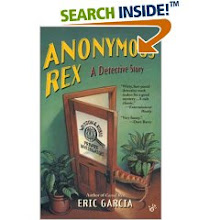
Reading Eric Garcia for Christmas
Click Here to Purchase Anonymous Rex
Vinegar Hill
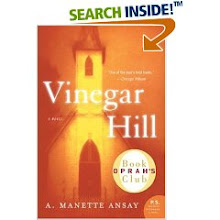
Reading A. Manette Ansay for Christmas
Click Here to Purchase Vinegar Hill
Nicotine Dreams

Reading Katie Cunningham for Christmas
Click Here to Purchase Nicotine Dreams
Junot Diaz
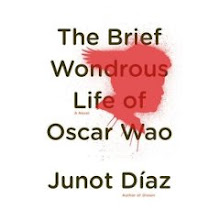
Pulitzer Prize Winner!!!
Click Here to Purchase The Brief Wondrous Life of Oscar Wao
Edwige Danticat

New Year's Reading
Click Here to Purchase Brother I"m Dying
Greed
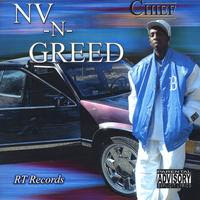
This Brother Is Scary Good
Sweet Music
One More Chance
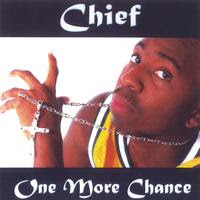
The genius Is At It Again/The Rapper CHIEF aka Sherwin Allen
Sandrine's Letter
Check out Sandrine's Letter To Tomorrow. You will like it, I insist.
Sandrine's Link
Cool Sites
- Akashic Books
- All or Nothing (My Other Blog)
- Asili The Journal
- Best Gamblling News Site
- Black Star Review
- Book Remarks
- Booktour.com
- Carolina Wren Press
- Click Here for Some Pretty Good Writing Contests
- Dedra Johnson
- Enrico Theoc
- Felicia Luna Lemus
- Florida Book Review
- Foreword Magazine
- Gambling Is Linked to Suicide
- Gambling Is Not Linked to Suicide
- Gaming Law Review
- Gene Durnell's The Thinking Journalist
- Gene Durnell's The Thinking Journalist
- Geoffrey Philp's Blog
- Get Chief's CDs on CD Baby
- Getting Past Gambling
- Gonzalo Barr's Blog
- Good Reads
- Hallema's Homepage
- Help With Gambling Addiction
- Jeremy Shipp's Website
- John Dufresne's Blog
- Leonard Nash Homepage
- Links to Seminole Casinos in Florida
- Martha Frankel's Homepage
- Michael A. Gonzales
- Miss Snark/ An Agent Gives Great Publishing Advice
- More Addiction Help
- No Gambling.com
- Pat MacEnulty
- ScrewIowa.com
- St. Louis Rams, The Greatest Show on Turf
- Suicide reference library
- T Cooper
- University of Florida
- Vicki Hendricks
- Walter Jacobs's Blog
- Writers Who Read
- Writing with Celia

All or Nothing

Editorial Reviews of All or Nothing
New York Times--". . . a cartographer of autodegradation . . . Like Dostoyevsky, Allen colorfully evokes the gambling milieu — the chained (mis)fortunes of the players, their vanities and grotesqueries, their quasi-philosophical ruminations on chance. Like Burroughs, he is a dispassionate chronicler of the addict’s daily ritual, neither glorifying nor vilifying the matter at hand."
Florida Book Review--". . . Allen examines the flaming abyss compulsive gambling burns in its victims’ guts, self-esteem and bank accounts, the desperate, myopic immediacy it incites, the self-destructive need it feeds on, the families and relationships it destroys. For with gamblers, it really is all or nothing. Usually nothing. Take it from a reviewer who’s been there. Allen is right on the money here."
Foreword Magazine--"Not shame, not assault, not even murder is enough reason to stop. Allen’s second novel, All or Nothing, is funny, relentless, haunting, and highly readable. P’s inner dialogues illuminate the grubby tragedy of addiction, and his actions speak for the train wreck that is gambling."
Library Journal--"Told without preaching or moralizing, the facts of P's life express volumes on the destructive power of gambling. This is strongly recommended and deserves a wide audience; an excellent choice for book discussion groups."—Lisa Rohrbaugh, East Palestine Memorial P.L., OH
LEXIS-NEXIS--"By day, P drives a school bus in Miami. But his vocation? He's a gambler who craves every opportunity to steal a few hours to play the numbers, the lottery, at the Indian casinos. Allen has a narrative voice as compelling as feeding the slots is to P." Betsy Willeford is a Miami-based freelance book reviewer. November 4, 2007
Publisher’s Weekly--"Allen’s dark and insightful novel depicts narrator P’s sobering descent into his gambling addiction . . . The well-written novel takes the reader on a chaotic ride as P chases, finds and loses fast, easy money. Allen (Churchboys and Other Sinners) reveals how addiction annihilates its victims and shows that winning isn’t always so different from losing."
Kirkus Review--"We gamble to gamble. We play to play. We don't play to win." Right there, P, desperado narrator of this crash-'n'-burn novella, sums up the madness. A black man in Miami, P has graduated from youthful nonchalance (a '79 Buick Electra 225) to married-with-a-kid pseudo-stability, driving a school bus in the shadow of the Biltmore. He lives large enough to afford two wide-screen TVs, but the wife wants more. Or so he rationalizes, as he hits the open-all-night Indian casinos, "controlling" his jones with a daily ATM maximum of $1,000. Low enough to rob the family piggy bank for slot-machine fodder, he sinks yet further, praying that his allergic 11-year-old eat forbidden strawberries—which will send him into a coma, from which he'll emerge with the winning formula for Cash 3 (the kid's supposedly psychic when he's sick). All street smarts and inside skinny, the book gives readers a contact high that zooms to full rush when P scores $160,000 on one lucky machine ("God is the God of Ping-ping," he exults, as the coins flood out). The loot's enough to make the small-timer turn pro, as he heads, flush, to Vegas to cash in. But in Sin City, karmic payback awaits. Swanky hookers, underworld "professors" deeply schooled in sure-fire systems to beat the house, manic trips to the CashMyCheck store for funds to fuel the ferocious need—Allen's brilliant at conveying the hothouse atmosphere of hell-bent gaming. Fun time in the Inferno.
Florida Book Review--". . . Allen examines the flaming abyss compulsive gambling burns in its victims’ guts, self-esteem and bank accounts, the desperate, myopic immediacy it incites, the self-destructive need it feeds on, the families and relationships it destroys. For with gamblers, it really is all or nothing. Usually nothing. Take it from a reviewer who’s been there. Allen is right on the money here."
Foreword Magazine--"Not shame, not assault, not even murder is enough reason to stop. Allen’s second novel, All or Nothing, is funny, relentless, haunting, and highly readable. P’s inner dialogues illuminate the grubby tragedy of addiction, and his actions speak for the train wreck that is gambling."
Library Journal--"Told without preaching or moralizing, the facts of P's life express volumes on the destructive power of gambling. This is strongly recommended and deserves a wide audience; an excellent choice for book discussion groups."—Lisa Rohrbaugh, East Palestine Memorial P.L., OH
LEXIS-NEXIS--"By day, P drives a school bus in Miami. But his vocation? He's a gambler who craves every opportunity to steal a few hours to play the numbers, the lottery, at the Indian casinos. Allen has a narrative voice as compelling as feeding the slots is to P." Betsy Willeford is a Miami-based freelance book reviewer. November 4, 2007
Publisher’s Weekly--"Allen’s dark and insightful novel depicts narrator P’s sobering descent into his gambling addiction . . . The well-written novel takes the reader on a chaotic ride as P chases, finds and loses fast, easy money. Allen (Churchboys and Other Sinners) reveals how addiction annihilates its victims and shows that winning isn’t always so different from losing."
Kirkus Review--"We gamble to gamble. We play to play. We don't play to win." Right there, P, desperado narrator of this crash-'n'-burn novella, sums up the madness. A black man in Miami, P has graduated from youthful nonchalance (a '79 Buick Electra 225) to married-with-a-kid pseudo-stability, driving a school bus in the shadow of the Biltmore. He lives large enough to afford two wide-screen TVs, but the wife wants more. Or so he rationalizes, as he hits the open-all-night Indian casinos, "controlling" his jones with a daily ATM maximum of $1,000. Low enough to rob the family piggy bank for slot-machine fodder, he sinks yet further, praying that his allergic 11-year-old eat forbidden strawberries—which will send him into a coma, from which he'll emerge with the winning formula for Cash 3 (the kid's supposedly psychic when he's sick). All street smarts and inside skinny, the book gives readers a contact high that zooms to full rush when P scores $160,000 on one lucky machine ("God is the God of Ping-ping," he exults, as the coins flood out). The loot's enough to make the small-timer turn pro, as he heads, flush, to Vegas to cash in. But in Sin City, karmic payback awaits. Swanky hookers, underworld "professors" deeply schooled in sure-fire systems to beat the house, manic trips to the CashMyCheck store for funds to fuel the ferocious need—Allen's brilliant at conveying the hothouse atmosphere of hell-bent gaming. Fun time in the Inferno.
At Books and Books
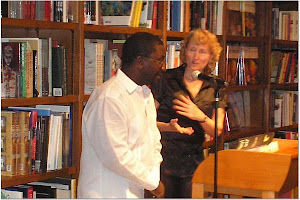
Me And Vicki at Our Reading
Bio
Preston L. Allen is the recipient of a State of Florida Individual Artist Fellowship in Literature and the Sonja H. Stone Prize in Fiction for his short story collection Churchboys and Other Sinners (Carolina Wren Press 2003). His works have appeared in numerous publications including The Seattle Review, The Crab Orchard Review, Asili, Drum Voices, and Gulfstream Magazine; and he has been anthologized in Here We Are: An Anthology of South Florida Writers, Brown Sugar: A Collection of Erotic Black Fiction, Miami Noir, and the forthcoming Las Vegas Noir. His fourth novel, All Or Nothing, chronicles the life of a small-time gambler who finally hits it big. Preston Allen teaches English and Creative Writing in Miami, Florida.